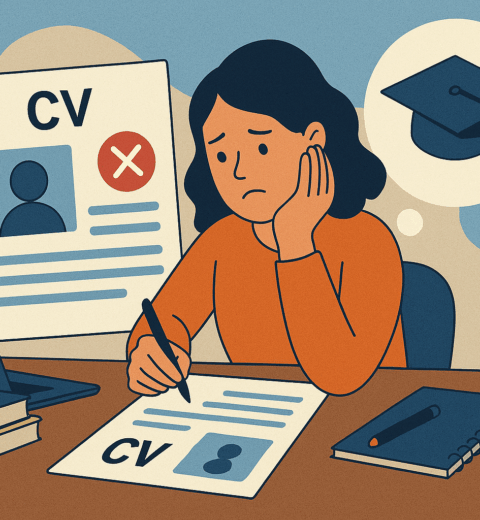When it comes to landing your dream job, the question often arises: “What matters more on a resume your degree or your skills?” While academic qualifications are important, employers in 2025 are increasingly prioritizing practical skills, certifications, and real-world impact.
So how do you strike the perfect balance on your resume? In this blog, we’ll break down the degree vs. skills debate, share actionable formatting tips, and help you create a career-boosting resume that gets noticed.
1. The Shifting Job Market: What Employers Value in 2025
Hiring trends show a clear move toward skills-first recruitment, especially in tech, marketing, healthcare, and finance. Employers now scan resumes looking for demonstrable capabilities rather than just credentials.
Example:
A candidate with a diploma in Data Science plus a portfolio of Python projects is far more compelling than someone with a higher degree but no applied experience.
2. When to Emphasize Your Degree
There are cases where your education should take center stage, especially if:
- You attended a prestigious institution relevant to the role.
- You’re applying to academia, research, or government roles.
- You’re a recent graduate with limited work history.
Resume Tip:
Place your “Education” section above Experience if your degree is your strongest asset.
Need help highlighting your academic background effectively? Our CV Writing Service is built to showcase education, certifications, and key achievements in a professional and results-driven format.
3. Why Skills Are Often More Powerful
In most industries, skills especially technical and soft skills are what truly drive hiring decisions. Employers want candidates who can:
- Solve problems
- Use tools and software
- Communicate effectively
- Adapt to real-world work environments
Resume Strategy:
- Use a dedicated Skills section featuring hard skills (e.g., Excel, Java, SEO) and soft skills (e.g., time management, leadership).
- Incorporate skills into your Experience section by describing how they were used in projects or roles.
Pro Tip: Use bullet points like:
- Analyzed customer data using Excel to increase sales by 18%
- Led a 4-person team to develop a mobile app prototype in 3 weeks
4. How to Combine Degree + Skills for Maximum Impact
You don’t need to pick one over the other. The best resumes weave both qualifications and competencies into a seamless, compelling narrative.
Example Structure:
- Professional Summary: A snapshot of your career, combining your degree + strongest skills.
- Education Section: List degrees, honors, and relevant coursework.
- Skills Section: Hard & soft skills, certifications, tools.
- Experience Section: Show how you applied your skills in internships, part-time jobs, or academic projects.
Want to see this in action? Our blog on Top 5 University CV Mistakes & How to Fix Them explains how to correct outdated formats and make your resume more skill-forward even as a student.
5. Bonus: Certifications and Micro-Credentials
With platforms like Coursera, LinkedIn Learning, and Google Career Certificates, online certifications now carry real weight on resumes. They show initiative, current knowledge, and job-readiness.
Where to Place Them:
- Create a Certifications section after “Skills”
- If a certification is highly relevant, mention it in your Professional Summary
Conclusion
Your degree gets your foot in the door, but your skills seal the deal. The most effective resumes in 2025 are those that present education as a foundation and skills as proof of value.
By combining both elements in a clean, strategic format, you’ll stand out to recruiters scanning for action-ready candidates not just academic achievers.
Whether you’re a student, a career-changer, or a seasoned professional, ResumeFaster offers expert CV Writing Services that highlight your education and spotlight your skills in all the right ways. Let’s help you build a resume that moves your career forward.



